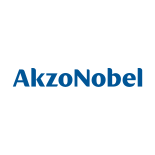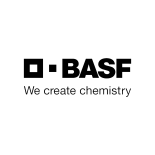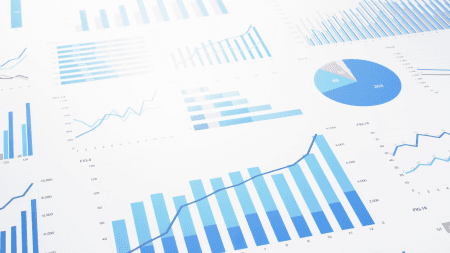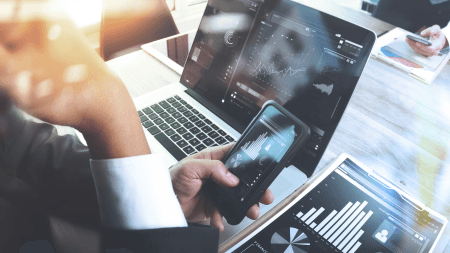A research project consists of a process designed to answer a specific research objective, usually identified by a business curiosity or challenge. At B2B International, these are split into four distinct categories: understanding your customers, buyers and influencers; understanding products and pricing strategies; understanding markets and opportunities and understanding brands and communications.
What Are the Key Stages of a Market Research Project?
The five key stages of a market research project

-
Kick-Off Meeting
This is an excellent opportunity for the dedicated research team at B2B International to meet face-to-face with the client’s immediate project team and wider key stakeholders to ensure that everybody is aligned with the research objectives from the beginning and to communicate expectations of the research. This meeting also provides a chance to understand any concerns, keys to success and what is feasible to implement, ensuring that the strategic recommendations following fieldwork are practical and realistic to be embedded within a company. Often, engaging workshop activities are carried out to understand employee perceptions of the research outcomes, to later compare with the results achieved.
-
Project Design and Set-Up
Following the kick-off meeting, B2B International are responsible for designing the questionnaire for the project. Depending on the research objectives, this could be designed for focus groups, qualitative depth interviews, semi-structured interviews or quantitative surveys. Questionnaires are usually designed in collaboration with the client, ensuring all research requirements are answered and very often, a mixed methodology approach is used. Once agreed upon, this is translated into relevant languages and scripted into a CATI system, particularly where telephone interviews are involved.
-
Fieldwork
Fieldwork can take many forms, depending on the initial research aims and objectives agreed upon. With telephone interviews and online surveys, there is usually a pilot stage, where around 10% of the target number of interviews are carried out in local language and are then assessed by the research team. This is to make sure all questions have been understood, and the data quality is adequate for analysis, following the fieldwork stage. Following this assessment, the remaining number of interviews are carried out over a typical period of 2-4 weeks, depending on the number of interviews to be achieved and the audience in question.
-
Data Immersion and Analysis
At this stage, the data is collected and collated into a software such as SPSS, making it easier to digest and analyze the findings from the research. The experienced research team at B2B International immerse themselves into the data to develop a clear story and summary of the results from the research. Initially, top line findings are established, highlighting key trends in the data. Content analysis is then carried out, using emergent and existing frameworks to present the data, addressing the objectives of the study. This is usually in the form of a PowerPoint presentation and will include conclusions and actionable recommendations throughout.
-
Presentation and Dissemination of Findings
A final presentation is delivered to the immediate client team, usually face-to-face. The aim of this presentation is to deliver the key findings from the research, to answer any questions and to discuss strategic recommendations and next steps for the client, with ongoing consultancy from B2B International. Often, in order to disseminate the findings to the wider company, an infographic is created, usually in the form of an A2/A3 poster, booklet or brochure which summarizes the key insights and highlights actionable recommendations for employees.
Our Clients












